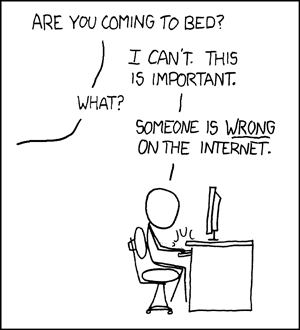As I understand it, the point of distributing (including posting, as on the arxiv) preprints is that one wants to both speed up and enhance the publicity of their paper and the feedback they get on it. A very common practice is to post preprints on the arxiv, see what kind of reaction you get, and then submit them for publication anywhere from a week to a few months afterwards.
So I think that it is fair to assume that if someone posts a preprint on an electronic server, they are interested in feedback from any interested party. Thus you were being helpful in contacting the authors about what you perceive to be a problem in their work. I think that in most cases, what the authors do with your feedback is their business, up until the point where it becomes submitted -- and you are an editor or a referee -- or published.
In particular, there is no "standard temporal scale" for modifying arxiv preprints: there are some famous examples of papers on the arxiv that have been known to be flawed for years but have not been "withdrawn". I would advise against that, but that's the authors' choice. At what point to make what you regard as less essential changes is really nebulous. To give one brief example, I found a lapse in the exposition of a paper I submitted to the arxiv last month just a few days after submitting it. I really wanted the paper to be understandable to everyone, so I did upload a new copy. More recently I discovered that a result that we attribute to mathematician X was also earlier done by mathematician Y (the two works were independent and use different methods). I certainly want to straighten this out before publication. But I have not yet uploaded a new version of the preprint: it's a judgment call.
Maybe the authors are addressing your comments. Maybe they happen to know that they're right and you're wrong. Or maybe neither of you is wrong and you're just not understanding the language in the same way. (I have seen this happen again and again.) It's hard for you to know what the authors are doing, and I wouldn't assume that your criticism hasn't gotten through: a bland acknowledgment of receipt is a pretty good first response to an email like that.
Should you upload a critical arxiv preprint yourself? Probably not, most of the time. Exceptions:
1) The mistake in the author's preprint is specifically detrimental to your own research. For instance if the information that the author's preprint is critically flawed is important to the refereeing of one of your papers, that's a reasonable call to action.
2) If the paper does something extremely important and is getting widespread "public" attention. For instance, if the preprint purports to solve the Riemann Hypothesis, everyone else believes it, but you have identified the flaw, then you'll be doing the community a great service by getting this information out.
These exceptions are fairly exceptional. Even in those cases I would counsel repeated contact with the authors rather than uploading the preprint straight away.
Important Note: I fear that my advice may be somewhat field specific. In mathematics, we really don't place a premium on openly critiquing each other: all other things being equal, that's a distinct negative. There are some academic fields where pointing out the flaw (or arguable flaw) in someone else's work is a really good paper of yours.
Finally, you ask if the authors would be ethically obliged to cite your hypothetical preprint. I think this is easy: you are ethically obliged to cite any source that you have specifically and substantively used in the course of doing your work or (especially) that has made you modify your work. So the authors would have to cite your preprint if they respond to it in any way. If their perspective is that your criticism is without merit, they do not need to cite it in their submission and it may in fact be inappropriate to do so.

